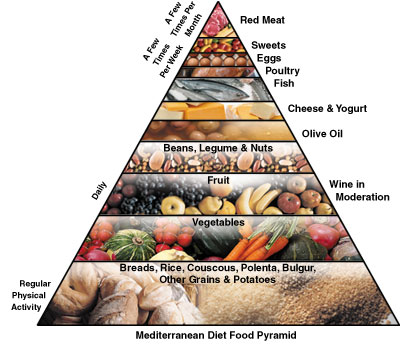Arthritis and other joint issues
can certainly make life difficult, especially when it is weight-bearing joints
that are affected, such as the knees or hips. Chronic joint problems often have
their roots in gradual knee or hip injury, years of use wearing away at the
cartilage that cushions the joints. While some wear-and-tear on weight-bearing
joints is inevitable, maintaining a healthy, active lifestyle that promotes
joint health can keep it to a minimum, reducing your risk of developing serious
joint problems.
Joint-Healthy
Activity
Staying fit and active is one of the best
ways to avoid arthritis and joint problems. Strong muscles help keep joints
stable and well-aligned, promoting smooth and efficient function that reduces
joint stress and wear. Strong, dense bones help prevent joint deterioration and
knee or hip injury, and physical activity is essential to keeping bones in
great shape.
Keeping your muscles and bones in great
shape doesn't mean you have to spend long hours in the gym. Any weight-bearing
activity will do, so choose something you enjoy, whether it is tennis, golf,
walking or swimming. Yoga is another exercise activity that has become very
popular to assist your muscles and bones. As long as you are active for at
least half-an-hour per day most days of the week, you'll be doing your joints a
favor. But, be gentle with them by limiting activities that jar or stress them,
like running, jumping or intense weight-lifting.
Nourish
Your Joints
Keeping your body well-nourished is
important to keep joints healthy and strong. Balanced nutrition supplies your
body with the materials it needs to keep bones, muscles and joints healthy and
in good repair. Vitamin D and calcium are especially important for strong
bones, and vitamin C is a crucial component in the production of collagen,
which is essential to bones, muscles and cartilage. So make sure your diet is
healthy and balanced, and add a little nutritional insurance in the form of a
good multivitamin supplement with minerals.
Don't
Ignore Joint Pain
Joint stiffness or pain is often an
indication of an underlying problem, such as muscle imbalance, knee or hip
injury or even auto-immune issues like rheumatoid arthritis. Finding out what
the problem is and treating it early can prevent more serious ones, heading off
chronic joint problems and excessive joint wear.
Why
Joint Health Should be a Priority
Joint health is very important to your
health and well-being, especially when it comes to major weight-bearing joints
that are essential for good mobility. Knee and hip injuries or chronic joint
issues like arthritis can require aggressive treatment to resolve, such as
joint replacement surgery. While these procedures can be a blessing to people
disabled by serious joint problems, they are major surgery and there are risks.
For example, over the past several years,
many hip replacement patients have been affected by faulty hip implant
products, facing unexpected complications. Many were affected by metallosis, a
serious condition caused by particles of metallic implant debris shed from metal-on-metal hip implants.
That debris collected in soft tissues around the hip joint, causing severe pain
and inflammation, tissue death and bone loss. Avoiding these risks is well
worth the time and effort it takes to protect joint health.
Elizabeth Carrollton uses her background
in journalism to write for DrugWatch.com. She is dedicated to educating the
public about medical safety and important decisions that can impact a person’s
health and life. Much of her work at Drugwatch includes editorials pertaining
to hip replacements and alternative solutions to relieve
pain, as well as complications and hip replacement
lawsuit information.

